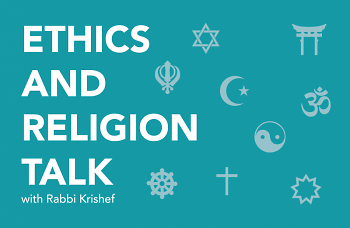Linda Knieriemen, Senior Pastor at First Presbyterian Church in Holland, responds:
“Christian scripture doesn’t weight in on this directly but indirectly I can deduce that yes, animals will have some sort of afterlife. In the early chapters of Genesis 1, 2, 6-9, I read that God created, affirmed and loved animals in the first paradise of Eden. I also read in the Flood story that God cared to protect them from the drowning waters. If God brought them into being, loved them, protected them, and envisions them in a future paradise where the lion will lie down with the lamb, I conclude that the God who all loves Creation has provided for their continuation in life beyond this life. They have a part of the divine spark, a spirit. But it is humans who are made explicitly in ‘the divine image’ which I take as referring to having a rationale mind as well as being given responsibility to govern, protect, and nurture in God’s stead, on earth. Other animals don’t have that capacity but that doesn’t dismiss them from an afterlife.”
The Reverend Colleen Squires, minister at All Souls Community Church of West Michigan, a Unitarian Universalist Congregation, responds:
“Unitarian Universalists do not assert one particular creed or support one specific dogma. I am comfortable saying whatever we may believe is true for humans would most likely apply to an animal because we hold our pets in high regard. Many would say following the death of a beloved pet that they have crossed the Rainbow Bridge. What that exactly means is up to the person saying it.”
Fred Stella, the Pracharak (Outreach Minister) for the West Michigan Hindu Temple, responds:
“Hindu scriptures teach that an eternal soul possesses the forms of all sentient beings. So, animals don’t have souls; rather, souls have animals, so to speak. All souls are on a journey from protean life forms to humanity, and ultimately to divinity. Hindus in recent times have quoted the philosopher/writer Arthur Young of the 19th century: ‘God sleeps in the minerals, is awake in plants, walks in animals, and thinks in humanity.’ Many people envision being reunited with their pets in heaven, but hesitate to believe that rats, snakes, bats and other ‘less desirable’ animals are afforded any afterlife experience. That is obviously not a consistent view.”
The Rev. Steven Manskar, pastor of Trinity United Methodist Church in Grand Rapids, responds:
“ ‘And God said, ‘Let the earth bring forth living creatures of every kind: cattle and creeping things and wild animals of the earth of every kind. .... God made the wild animals of the earth of every kind, and the cattle of every kind, and everything that creeps upon the ground of every kind.’ (Genesis 1:24-25).
“God created animals before God created human beings. Animals are part of God’s good creation. They play important roles in maintaining balance in their respective ecosystems. Animals are helpers and companions to human beings and human civilization.
“God’s Son, Jesus, was born in a barn. Domesticated animals were witnesses to his birth. His first bed was a manger, a feed trough for livestock. At the beginning of the last week of his life, Jesus entered Jerusalem riding a donkey in the same way his mother travelled from Nazareth to Bethlehem. This tells me that animals have a role to play in God’s mission redeeming planet Earth.
“I have enjoyed the companionship of several dogs and cats in my life. They are adopted members of our family. We enjoy their company, as they enjoy ours. We mourn them when they die. I’m convinced animals have souls and they will be part of God’s kingdom on that day when heaven and earth are united.”
Rev. Ray Lanning, a retired minister of the Reformed Presbyterian Church of North America, responds:
“In the nature of the case, animals have spirits or souls (Latin: animae), or they would not be ‘animals.’ But the souls God gives them are not immortal, but perish with their bodies when they die. By contrast, when humans die, their mortal bodies return to the earth, and their immortal souls return to God, to await His judgment. The difference is spelled out in Scripture: ‘Who knoweth the spirit of man that goeth upward, and the spirit of the beast that goeth downward to the earth?’ (Ecclesiastes 3:21).
“The Book of Revelation attests that there are other animate or living creatures in heaven besides angels and humans (Revelation 4). But these extraordinary ‘beasts’ appear to have been created for life and work in heaven, not on earth. Much as we love our dogs and cats as ‘special friends’ and ‘comfort animals,’ they cannot and will not be with us in heaven. The lesson is, care for and enjoy them while you have them! Like all gifts of God that pertain only to this life, they are ours for a limited time.”
This column answers questions of Ethics and Religion by submitting them to a multi-faith panel of spiritual leaders in the Grand Rapids area. We’d love to hear about the ordinary ethical questions that come up in the course of your day as well as any questions of religion that you’ve wondered about. Tell us how you resolved an ethical dilemma and see how members of the Ethics and Religion Talk panel would have handled the same situation. Please send your questions to [email protected].
The Rapidian, a program of the 501(c)3 nonprofit Community Media Center, relies on the community’s support to help cover the cost of training reporters and publishing content.
We need your help.
If each of our readers and content creators who values this community platform help support its creation and maintenance, The Rapidian can continue to educate and facilitate a conversation around issues for years to come.
Please support The Rapidian and make a contribution today.
